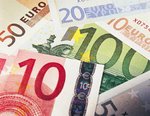The Stock Exchange is a highly organised financial market where bonds, stocks and shares are bought and sold. It is a free market because the prices of securities move in response of supply and demand. When a company invites the public to invest in it, the money is put to permanent use. Therefore the money cannot be returned to the investors because it has been used. The only way that the shareholders can get their money back is by selling their shares to someone else through the Stock Exchange.
If you want to buy or sell shares you can go to the local branch of your bank and tell them what and how many shares you want to buy. The bank will turn to a broker, who goes to the SE on your behalf. The broker works for you on a commission, which is a small percentage of what the shares cost.
A security is a written or printed document acknowledging the investment of money. It covers all kinds of investment with which the SE is concerned. The reward paid is called a dividend, because the profit is divided up among the shareholders.
Equities:
I. Gilt-edged securities (government stocks) are bonds issued by the government of the UK. The name conveys the impression of reliability. The investors are entitled to a fixed rate of interest (yield) at fixed dates (redemption date) on the nominal value.
II. Local authority bonds are issued by local authorities and the money invested represents a loan to the authority.
III. Debentures are issued by companies when the investor lends money to the company, and for his loan he is entitled to receive money in return, the interest. It is also a kind of bond. Debenture holders have no involvement in the management of the company.
IV. Shares or stock certificates are documents stating that the owner has a share in a specific company because he has invested money in it. They entitle the holder to participate in the ownership of a company and to receive its profits if there are any. (dividend) There are two main types of shares:
Preference shares: Their holders have the right to receive dividends before ordinary shareholders. Normally preference shares pay a fixed rate of dividend but only if sufficient profits are available to make a payment. They carry no voting rights.
Ordinary shares (equities): They represent a share in the ownership of a company. Each share is entitled to an equal proportion (dividend) of the company’s profit. The amount of dividend to be paid is decided by the directors of the company and is dependent upon the profitability of the firm. Ordinary shares are known as ‘blue chips’.
The Stock Exchange ‘animals’
They are ‘bulls’, ‘bears’ and ‘stags’. They are called speculators rather than investors because they trade in the market for short-term benefits, not long-term gains.

Bulls believe that the price will rise, so they buy shares and hope to sell them later for a profit.
Bears think that prices will fall so they sell shares and hope to buy them back at a lower price. (When prices are thought to be rising, the market is described as bullish; when they are falling, it is called bearish.)
Stags specialize in buying carefully selected amounts of newly issued shares before they are traded on the SE. If they are lucky, they sell these shares as soon as they are traded and make a large, quick profit.


No comments:
Post a Comment